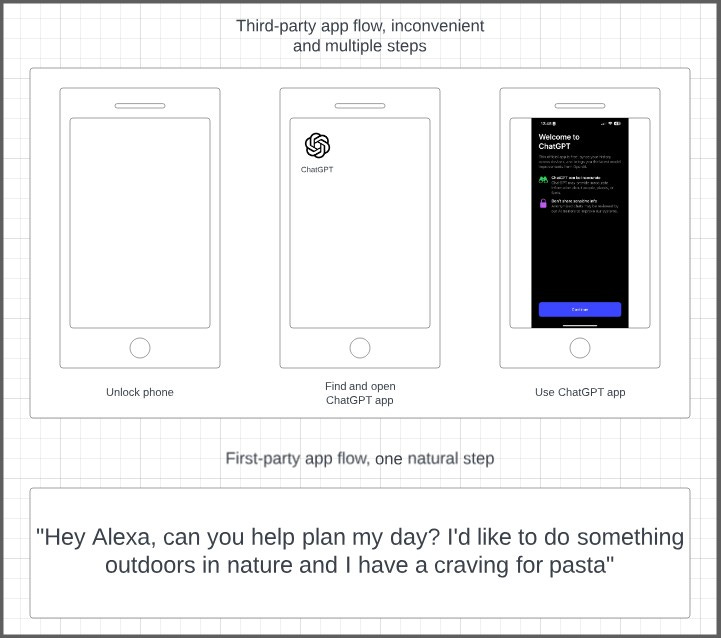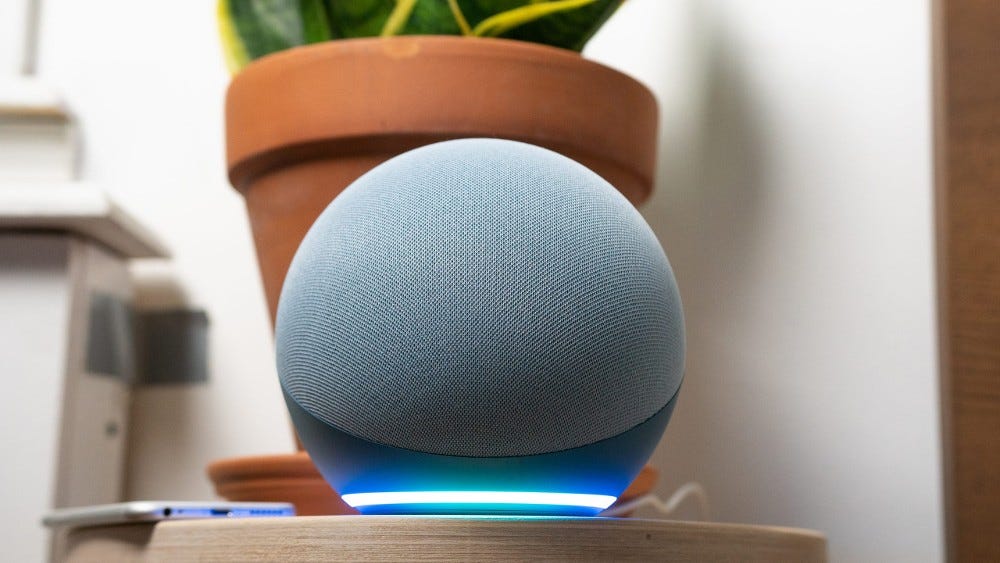The First Real Winner of AI
Cutting through AI mania noise to present a point-of-view on who we think the first real winner of AI will be.
There’s a lot of enthusiasm and talk about AI this past year. New investments, businesses, and capabilities. However, while the enthusiasm is rightly placed, it has exceeded substance and there is way too much noise around AI right now. This article attempts to cut through the noise and present a point-of-view on who we think the first real winner of AI will be.
Amazon views its AI initiatives with a three-layer framework:
The base layer consists of the hardware required to run the AI models. Think Nvidia’s chips.
The middle layer consists of the LLMs (large language models) where the AI magic happens.
The last layer is the application layer that connect LLMs to end users. Think apps like ChatGPT and Dall-E.
We think the first real winner of AI will emerge from the application space. It’ll be seamlessly integrated into everyday experiences that users are already used to. Widely adopted tangible personal devices like smart phones and home assistants are perfectly suited to capitalize on this opportunity. Imagine pulling out your smartphone while waiting for the bus or sitting in a living room with an Alexa device and a ChatGPT-like assistant is just one voiced question away from helping you. This is a significantly more convenient experience than having to open an app and type out a question. The unparalleled accessibility of first-party AI device integrations will not only 10x the usage and value provided by AI chatbots, it’ll also eclipse the usage and popularity of any competing third-party AI applications.

The first company to successfully integrate an AI chatbot with a widely adopted personal device will be the first real winner of AI. Everything else is auxiliary.
As such, we believe that only a few Big Tech companies that sell mass market personal devices have a real chance at initial AI dominance. Namely, Amazon (Alexa), Apple (iPhone, Apple Watch, Siri, etc.), and Google (Pixel, Google Home).
Alexa and Google Home appear to have best chances of success here given their existing conversational interface and widespread household adoption. AI integration into the user interfaces of both products will be seamless and users don’t have to learn jarring new ways to interact.
In Amazon’s recent Q3 earnings call, Andy Jassy shared the company’s early progress with integrating an LLM into Alexa and Google, not to be outdone, just announced an early access version of a Bard integration with Google Home called “Assistant with Bard”.
“And in Alexa, we built a much more expansive LLM and previewed the early version of this. Apart from being a more intelligent version of herself, Alexa's new conversational AI capabilities include the ability to make multiple requests at once, as well as more natural and conversational requests without having to use specific phrases.” — Andy Jassy in Amazon’s Q3 earnings call
Finally, although this first-party device strategy for AI dominance hasn’t been discussed much in the media, it appears to be aligned with how Microsoft and OpenAI think about their long-term AI strategy.
In fact, news came out just last month that Apple’s former chief design officer and OpenAI are in discussions to build the “iPhone of artificial intelligence”. Softbank will fund the initiative with $1 billion. In addition, Microsoft’s CEO Satya Nadella recently mentioned in a Business Insider interview that it was a mistake for Microsoft to give up on its mobile phone business (i.e. the Windows Phone).
Although first-party AI integration in personal devices will likely be the first mainstream AI use case, it certainly won’t be the last. AI will eventually enable us to build fully-automated factories, discover and manufacture new drugs at breakneck pace, run entire transportation systems with no human intervention, and many other monumental society-changing use cases. Big Tech might be the first companies to make AI widely accessible to consumers but they certainly aren’t guaranteed to be the overall winners of this new age of AI.




